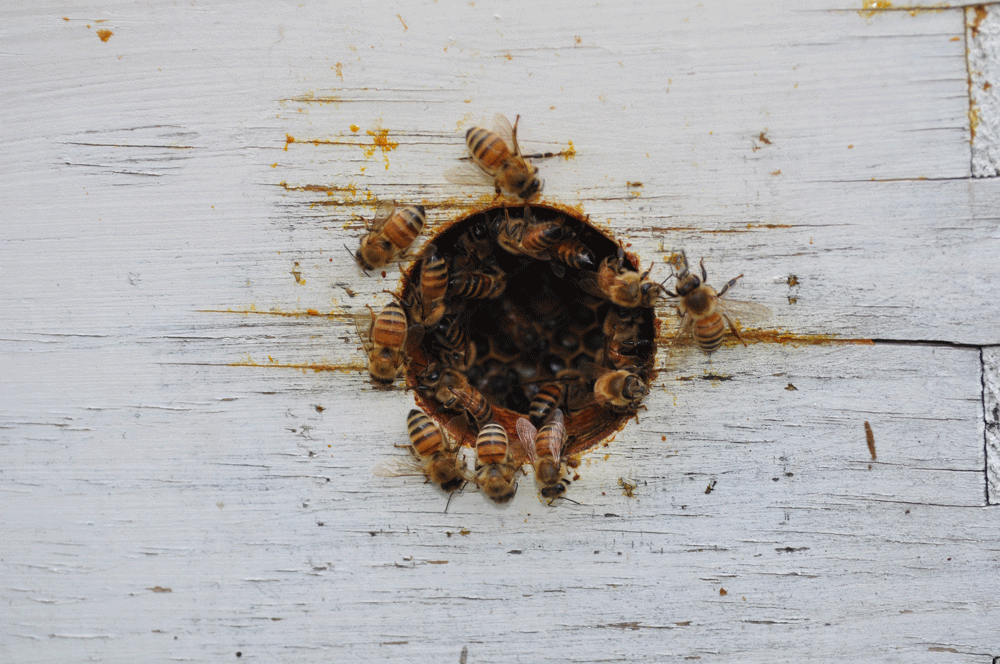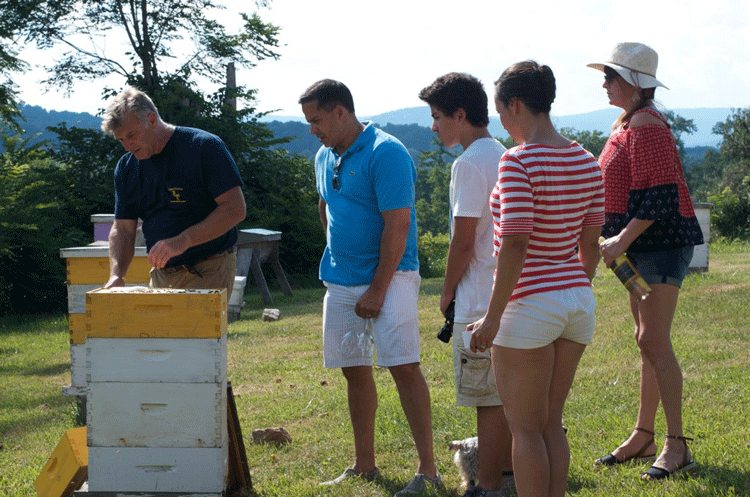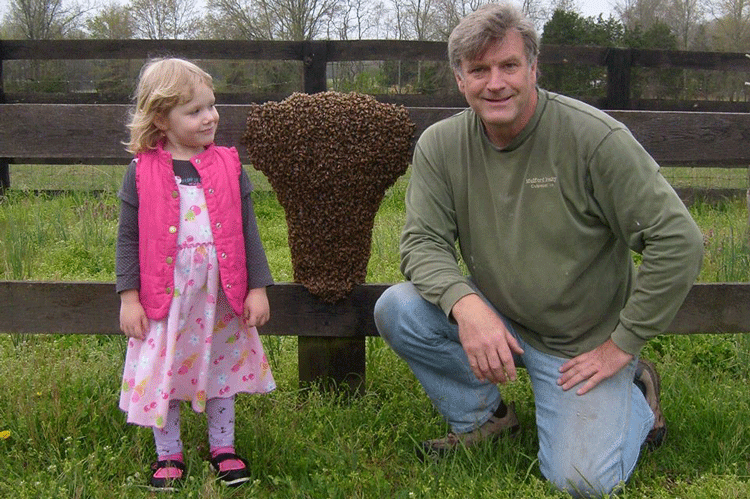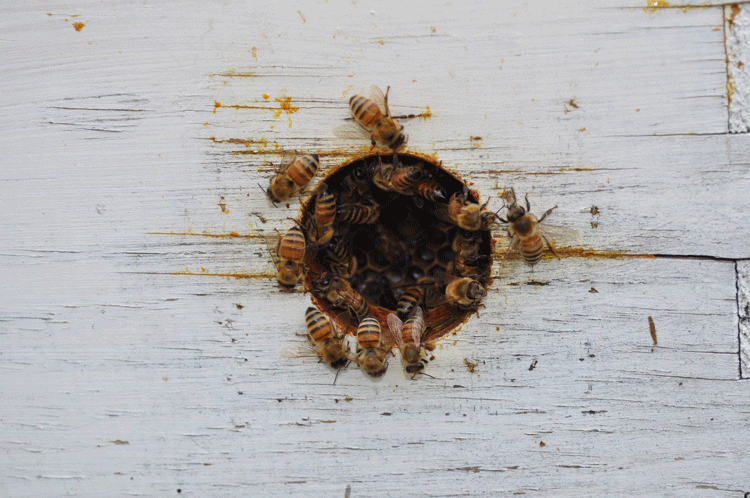The Art of Beekeeping

By Chelsea Rose Moore | Photos courtesy of Maidstone Meadery
“For so work the honey bees, creatures that by a rule in nature, teach the art of order to a peopled kingdom.” — William Shakespeare, King Henry V
For some beekeeping is a job, but for many others it is an art form creating life-changing results. From dealing with pests and mites, to bears and diseases, beekeeping is not easy, but its challenges are sweetened by high levels of reward. Middleburg’s beekeepers are deeply passionate about their trade and hope to raise awareness about the beauty of beekeeping and the sophistication of honeybees.

MARY WOLFE, THE GOODSTONE INN & RESTAURANT
When most people think of honey, bees come to mind. But Mary Wolfe, a beekeeper at The Goodstone Inn & Restaurant, sees so much more.
“Bees are the only insect that provide food for people. They are amazing builders. They carry pollens to the hive, [build] honeycomb, pack the honey in, seal it with wax,” she said, continuing to describe the complexity and organization of a single hive. “There are worker bees, guard bees, nurse bees, and undertaker bees. They all work together in the hive. Everything they do is just amazing.”
Wolfe has managed Goodstone’s bees for the past four years, where she collaborates with beekeepers Cole Lemaster and Germain Orizo-Lopez to oversee the four hives. Her goal for the next year is to add more hives and produce enough honey for the restaurant to include it on the menu.
In addition to the Inn’s hives, she also has three hives of her own, and believes in drawing a greater awareness to beekeeping’s importance. “If bees disappeared, we would have issues with food,” she said, “Without bees doing the pollinating, there’d be a lot less fruit and vegetables. It is because of bees that we have food.”
Goodstone’s honey is sold in their gift shop. Guests interested in learning more about the beekeeping program should contact the Inn to arrange a tour. www.goodstone.com
JOAN GARDINER, UNISON HONEY
A tile maker by trade, Joan Gardiner has always been fascinated by insects. She started beekeeping 12 years ago and hasn’t looked back. Her hives are located on her three-acre property in Unison, the place she calls home. She describes Unison as a great location for bees – it’s wild, uncultivated, and filled with goldenrod, which provides valuable sources of pollen and nectar, and
offers diversity for her bees.
Gardiner’s bees produced 650 pounds of honey in 2016, and have made almost as much in 2017.
“Honeybees are more than just an insect – they are a superorganism,” Gardiner said, “Together they can do things [other] insects can’t do, from regulating their body temperature, to storing food together, and building complex communities. Ants are superorganisms too, but you can’t work with them. With a honeybee, you can actually lift a frame out of the hive and see them doing these things.”
She appreciates that more people are beekeeping, and is grateful for The Salamander Resort & Spa and The Goodstone Inn & Restaurant having hives on their property and drawing a greater awareness to local honey and beekeeping. “It’s being a little bit of an ambassador,” she said, “It’s saying: ‘Bees are here [on our property], [their honey] is on our menu. We care about bees and you should too.’” www.unisonpottery.com
GARDINER MULFORD, MAIDSTONE MEADERY
Fighting spring allergies was the incentive for Gardiner Mulford to start beekeeping, and its results made him fall in love with honey harvesting. He began experimenting with mead a couple years later and hasn’t looked back. As the owner of Delaplane’s Maidstone Meadery, he’s been beekeeping for 10 years and making mead for 8. His 24 hives produce over 1,000 pounds of honey each year.
“Honey is the greatest, best, tastiest agriculture product on earth,” he said, “It is full of vitamins, minerals, amino acids, and carbohydrates.”

He hopes to open a discussion about the problem of pesticides in the United States, and is deeply concerned about the future of bees. Since 2006, Virginia has lost over 30% of its hives because of the neonicotinoid pesticide, a chemical toxic to bees. Mulford discussed the way it creates vulnerable hives that can be easily overcome by pests, because hives are not strong enough to defend themselves. Europe banned the neonicotinoid pesticide because of the high risk posed to honeybees, and he hopes the U.S. also chooses to protect one of nature’s most useful creatures. www.maidstonemeadery.com
JIM CRUNK, FOX MILL FARM & APIARY
Jim Crunk grew up on a Tennessee farm and has been working with bees off and on since he was 9 years old. Now, at 71, he has been keeping bees consistently for the past 10 years. His company Fox Mill Farm & Apiary offers beekeeping services by managing hives in Northern Virginia. He established the hives at Middleburg’s Greenhill Winery & Vineyards and managed them for three years, but recently left due to personal health reasons. He has scaled back the number of hives he owns, but has not lost an ounce of passion for the art of beekeeping.
He believes bees significantly impact the environment and provide many ways to improve people’s health. He described his understanding of bee stings providing relief from Lyme Disease, and local honey improving seasonal allergies.
Crunk’s advice to new beekeepers is twofold: “Beekeeping is not easy. It takes a lot of time. But it is interesting and it is rewarding.” He highly recommends joining a local beekeepers association – like the Loudoun Beekeepers Association – to find mentors, take classes, ask questions, and receive support during the early stages of beekeeping. ML www.foxmillapiary.com



